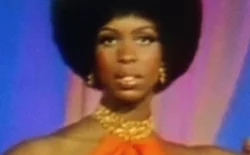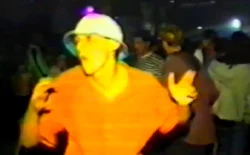Few software programs have been as crucial to the evolution and success of electronic music in the past decade as FruityLoops.
First introduced in 1997, FL Studio, as it’s now known, simplified the music making process by inadvertently emulating video games — the perfect hook for a generation raised on home consoles and personal computers.
When I ask Hervè Atsè Corti, a young Italian artist based in Florence, about his first memories of electronic music, the reply is instant: “The FruityLoops installer.” Corti came across the software while looking for a video game and thus treated it as such. The response also points to deep generational shifts. It’s not a specific artist or song that Corti remembers, but a tool that he could use to emulate the music he’d heard, treating it as if it was a game, rather than a studious endeavour. Today, Herva, as Corti is known, has moved on from FL Studio, but his music retains some of the mischievous ingenuity the program epitomises.
Born at the beginning of the 1990s, Corti took inspiration from his father’s musical inclinations — as a rock guitarist and classical composer — and picked up drum sticks before he turned 10. “Drums are… how do you say,” he tells me in a thick Italian accent, “impulsive! It’s good for a kid, you take the sticks, start playing, smash stuff and even if you aren’t really doing anything good you’re enjoying yourself.” By the early 2000s Corti had become a decent enough drummer that he played in a local funk band. However, he also had what he refers to as a “secret interest in heavy metal” that he wasn’t able to pursue due to the inherent politics of being in a band. “I was really into Metallica and Slipknot,” he recalls, “but if the band isn’t on your wavelength, you’re stuck. So I decided to switch.”
“I want to separate from inspiration, to make something free.”
The switch in question wasn’t an obvious one. Corti didn’t ditch his funk band for a metal outfit. One day he opened his father’s laptop looking for a video game to play and found the FruityLoops installer instead. Corti ran the program with no real focus: “I was just making weird trance music, between breakcore and trance.” The influence of trance throughout the European continent, often emanating from northern countries like The Netherlands, cannot be underestimated — especially in places like Italy where DJing culture and electronic music always faced resistance from strong musical traditions.
From Dutch trance Corti happened upon the more intricate and bizarre works of artists like Aphex Twin and Autechre, though any influence their music had on him wouldn’t manifest for years: “Trance was my thing.” Throughout the 2000s, Corti continued to experiment with electronic music as an aside to his work as a drummer. Over time, he came to realise what many others before him had: that electronic music production could allow Corti to be the whole band. There was no need to argue about what direction the music should take.
By the time Corti turned 20, in 2011, he had progressed to another iconic software package, Reason, alongside hardware tools, and begun to dive into the worlds of house and techno. The “fucking around” of his teenage years evolved into a more focused approach and soon enough drumming became an aside to producing electronic music. Corti debuted as Herva on local label Bosconi Records in 2011; tinges of his trance infatuation echoed across productions that ranged from slow to deep house. A year later he released his debut solo album and began to collaborate with another young Florentine producer named Dukwa, the alias of Marco d’Acquino, as Life’s Track. His second album, Instant Broadcast, was released on Dutch label Delsin in 2014, his music moving from the smooth edges of house towards abrasive techno rhythms, repetitions, and intricate stylings reminiscent of Aphex Twin. These preoccupations, and more, were also at the centre of a third, shorter, album for Irish label All City released at the start of 2015.
Key to Herva’s work since his debut has been a distance from the centres and accepted aesthetics of the music he indulges in. He is an outsider which, perhaps, explains why in 2013 he reached out to Mike Paradinas and the Planet Mu label — a home for electronic outsiders since the mid–1990s. Despite never receiving a reply, Corti decided to try his luck again, and this time “it was right.” The result is Kila, Herva’s fourth solo album, a feverish dream of house and techno smothered in samples, analogue dirt, and a strange tension.
I ask where the inspiration came from but Corti denies any. “I’m not really into music at the moment,” he says, a reply that seems curt but feels like it is lost in translation. “I want to separate from inspiration, to make something free. It’s hard to explain.” He seems exasperated at the limitations of language, any language. “I’m young,” he adds, as if to both explain and excuse his inability to divulge more.
Kila is a record born out of a desire to escape a clear lineage that can be neatly packaged for promotion. It’s also, Corti admits, a haphazard record. “I wrote the album randomly,” he explains. “I’m not interested in making a genre.” Corti wants to make music, not a specific kind of music. I point out how a random creation process remains a somewhat purposeful choice. “I don’t enjoy myself if I make the same thing over and over,” he replies. “Music is not like that, it’s what you have to say for yourself. Randomness brings that out.” His growing catalogue of music underlines Corti’s dedication to these ideals, no matter how lofty they may appear.
To create in a random manner Corti relied on a combination of homemade software and hardware, namely filters, a sequencer, and what’s known as an astable oscillator — a transistor with an output voltage approximating a square waveform that has no stable output, switching between states at all times. The music on Kila resembles the instability of the astable oscillator, swinging between recognisable forms but never settling on one. Additional flourishes come from sampled sounds. Some of these are obvious and instantly recognisable, such as Brenda Lee’s “Uh uh honey” on album opener ‘All Good On Your Side’, recently popularised by Kanye West on ‘Bound 2’. “I need something that I can fuck up,” Corti admits in relation to his use of samples. “If I can create an instrument to play bass, then maybe I’ll use a sample as the source and work with that.” True to his desire to shun creative dead ends, Corti has already moved on from traditional sampling towards creating his own with microphones and feedback.
“I appreciate people’s interest in my work but that’s not why I do it. I do it for myself.”
The digital revolution in the means of creation and distribution that defines our current era has made it easier for a generation to engage with the arts. It’s also fostered an inevitable hangover typified by the “tyranny of choice”: if everyone’s a musician, how does anyone get heard? Corti shuns the superficiality this conundrum promotes. He just makes the music, what happens next doesn’t preoccupy him. In our conversation he comes across as a little combative, though that strikes me as more of a desire to be realistic. “I’m a funny guy,” he says at one point, discussing his aversion to live shows and the party circuit. “I don’t like to waste my time talking.”
Speaking of his collaborations with Dukwa — and involvement with the freeform collective Tru West and trio Knobold — he admits to not being the best team player. “I like to do my thing,” he says. “Music is personal to me and I don’t have the best collaborative behaviour in the studio.” The Florentine scene, if you can call it that, is small and amorphous. Corti finds inspiration in the sounds that surround him in Florence and Italy. Dukwa and Mass Prod, the alias of Martino Marini, are kindred spirits. His collaborations with them have proved fruitful and yielded lessons despite his reluctance. “They are the only two people I can make music with. I like to work freely. I don’t want to deal with other people.”
Corti is currently studying to be an electrical engineer, which explains his proclivity for creating tools and unwillingness to dive into music full time. “I’d like to open a shop one day,” he says, “making synthesisers, drum machines, samplers. I’d like to create things I could sell and perhaps in doing that be able to play when I want while remaining an engineer. It’s a dream.”
The title track of Corti’s album for Planet Mu is a dense techno jam that the young producer describes as a “mystical experience.” The music wrote itself with Corti a mere physical conduit for something greater. As the track unfurls, a grunting male vocal reveals itself. Bringing to mind shamanism, the voice intones a word that resembles “killer.” Impressed by the creation process, Corti looked into the meaning behind the lyrics and discovered the Swahili word for everything: kila. It’s an apt summary for a record that is entirely unbound, driven by a youthful desire to be pure, to be the voice of its maker, even if that voice is still being formed.
“If you think you’ve found what you were searching for, it’s over,” Corti affirms when I ask if he’s found his voice. “I took apart the setup I used to make this album. I’ve not made music for a month and a half. I want to move on, so I need to start again. I’m not interested in making records, I want to make music. I want to be honest, but there’s too much that is fake out there today. I appreciate people’s interest in my work but that’s not why I do it. I do it for myself.”
Read next: An oral history of Planet Mu.


















![Ryoji Ikeda installation data-cosm [n°1] extended at 180 Studios until 1 February, 2026](https://factmag-images.s3.amazonaws.com/wp-content/uploads/2025/12/data-cosm-ALubbock_180-14Oct-3554-250x155.webp)
![180 Studios presents new Ryoji Ikeda installation, data-cosm [n°1]](https://factmag-images.s3.amazonaws.com/wp-content/uploads/2025/10/ryoji-ikeda-data-cosm-1-250x155.webp)












